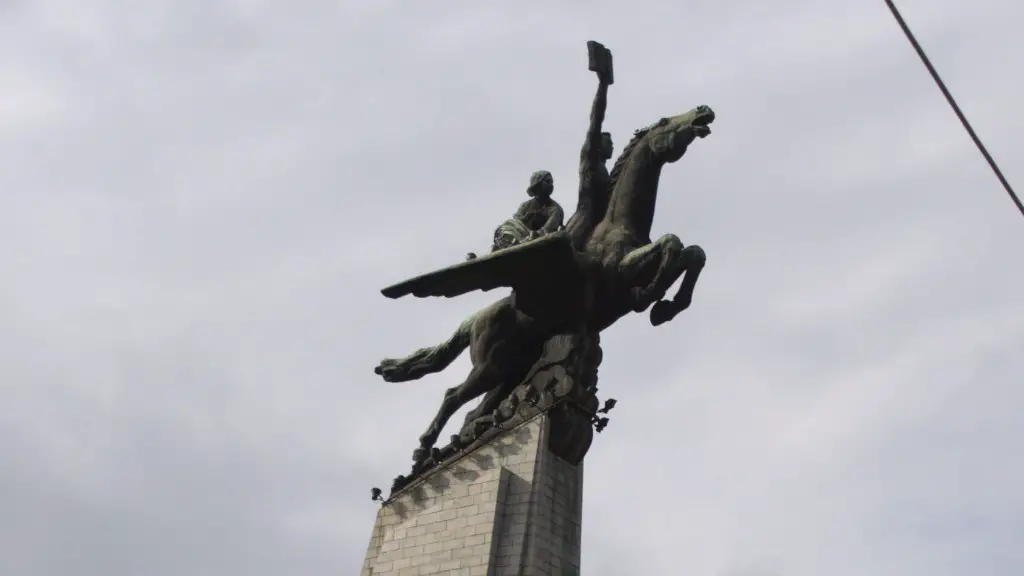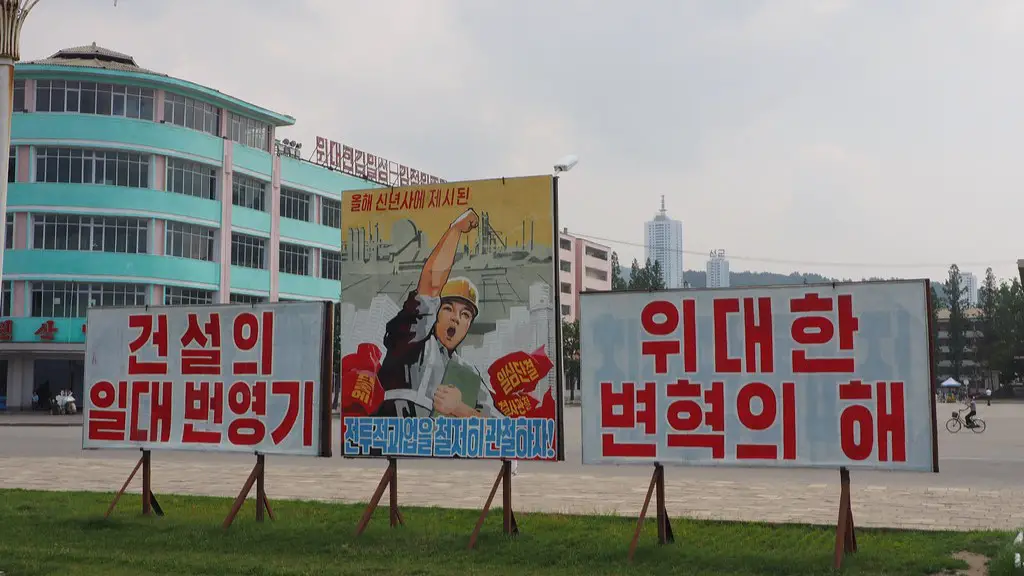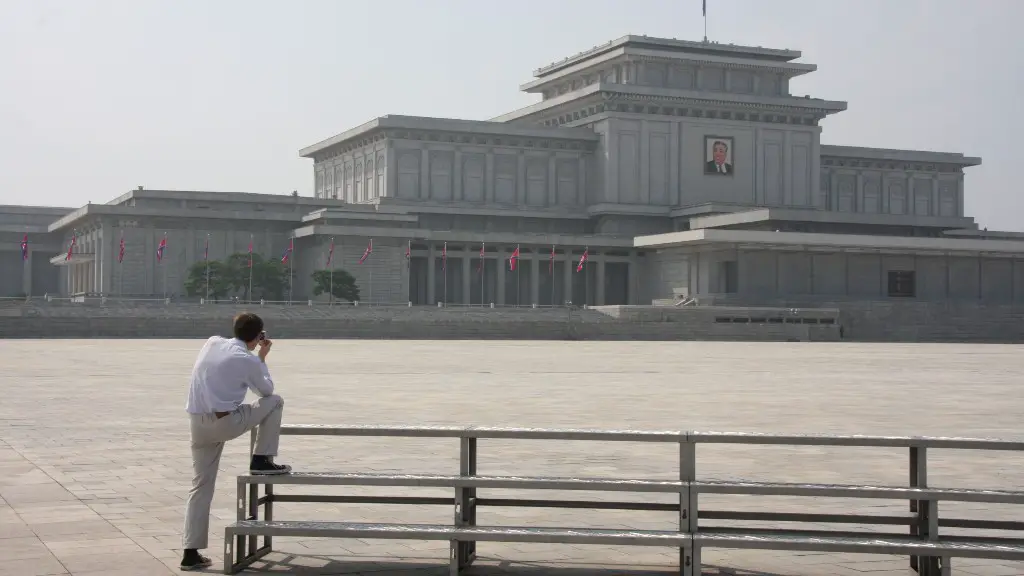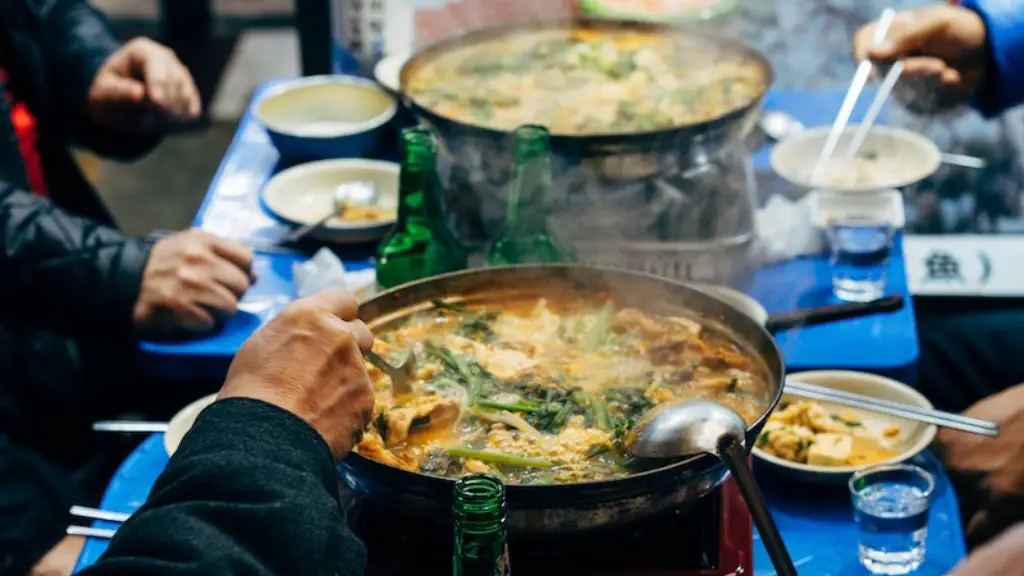The commonly accepted explanation for North Korea’s political systems is that it is a communist state. However, the truth is that North Korea does not function exactly as a classic Communist system, but is a hybrid of Communist and socialist components. The question then arises: Is North Korea actually Communist?
At first glance, North Korea appears to have much in common with a Communist nation. The government is led by the Workers’ Party, which is a Marxist-Leninist-based organization that holds absolute power in the country. In addition, the North Korean economy is based on a planned economy, in which the government makes all decisions about production, investment, and prices.
However, when one takes a closer look at the country, it becomes clear that North Korea does not operate entirely as a Communist state. For example, the government has embraced some elements of capitalism. The government has also allowed for limited private economic activity, such as the sale of goods and services and the establishment of private businesses.
Moreover, there are many aspects of North Korean society that do not fit with a classic Communist system. For instance, North Korea has an elaborate hierarchy, where some individuals have more power and influence than others. This goes against the Marxist principles of eliminating social classes. Furthermore, the North Korean government has no interest in overthrowing international powers in an effort to spread Communist ideology.
In the end, it is difficult to definitively determine whether North Korea is a true Communist state. It seems that while North Korea is certainly influenced by Communist principles, it also incorporates many elements of capitalism and traditional socialism. As such, it seems that North Korea operates as a unique hybrid of a Communist, socialist, and capitalist state.
Private Investment
Despite its hybrid nature, North Korea has embraced some aspects of capitalism. For example, the government has recently opened up to private investments from foreign entities, allowing companies to set up operations in the country. This has been seen as a sign that the North Korean government is slowly liberalizing its economic system and is more willing to engage with foreign partners.
This move has been welcomed by many as a way to increase economic growth and reduce poverty in the country. However, some experts caution that this liberalization could lead to an increase in corruption and inequality. In addition, private investments may have implications for North Korea’s political system, as more foreign companies may lead to increased scrutiny over the government and its policies.
As such, while private investment may provide some economic relief to the country, it may also bring with it unintended consequences. It is important for policymakers to be aware of these potential pitfalls and to ensure that any investments are managed responsibly.
Gender Equality
Despite being a hybrid between Communism and socialism, North Korea does appear to have some progressive elements, particularly with regards to gender equality. For example, North Korea has one of the highest rates of female participation in the workforce in the world. Indeed, a significant number of women are employed in key positions in the government and other areas of the economy.
Furthermore, North Korea has abolished several gender-based restrictions on women, including the requirement that they receive their fathers’ permission to marry, as well as restrictions on their freedom of movement. This suggests that, while there is still much more progress to be made, North Korea is slowly but surely moving towards gender equality.
Of course, there are still many aspects of the country that are not conducive to gender equality. For instance, there are still strict restrictions on the rights of women to participate in the political process. Moreover, there is still a large gender pay gap, and most women are still relegated to lower-paying and lower-status jobs.
Human Rights
Although North Korea does not conform to the classic Communist system, it remains a highly oppressive state. Citizens are subject to widespread human rights violations, including arbitrary detention, torture, and political repression. Moreover, access to information and freedom of expression are strictly limited, and those who dissent are subjected to harsh punishments.
The situation is even worse for the North Korean diaspora, many of whom have endured great hardship and mistreatment in other countries. North Korean refugees have been particularly victimized by human traffickers and other criminal networks, who have taken advantage of their vulnerable situation.
In light of this, it is clear that North Korea remains deeply authoritarian, despite its hybrid nature. The international community must continue to pressure the North Korean government to respect human rights and improve the overall situation of its citizens.
Relations with the West
The question of whether North Korea is actually Communist is complicated further when one considers the country’s relations with the West. Historically, North Korea has had tense relations with the United States and other Western governments, and it remains one of the few Communist-aligned countries in the world.
However, in recent years, North Korea has taken steps to improve relations with the West. This includes the historic meeting between the leaders of North Korea and the United States, in which they agreed to work towards nuclear disarmament. This suggests that North Korea is open to engaging with the West and that it may pursue a more moderate political stance in the future.
Ultimately, despite some positive developments, North Korea remains a deeply autocratic state that does not conform to typical Communist ideals. It is a hybrid system that incorporates aspects of different ideologies, which is reflected in its relations with the West and its approach to economic and social policy.
Aid and Development
Although North Korea is a hybrid between Communism and socialism, it is important to recognize that the country is still in desperate need of aid and development. North Korea is one of the poorest countries in the world, with significant infrastructure and health care systems. In addition, many North Koreans continue to be food insecure, and malnutrition remains a major problem.
The international community must continue to provide aid and development to North Korea, in order to ensure that its citizens get the help they need. This could include the provision of food and medical supplies, as well as investment in infrastructure and education. While North Korea may not fit into a traditional Communist model, its citizens deserve the same basic rights and freedoms as everyone else.
Moreover, by providing aid and development, the international community can also help build trust between North Korea and the West. Helping North Korea to improve its economic, social, and health care systems could play a major role in rebuilding bridges, and could help bring the country closer to the West.
The Future of North Korea
Given the complexity of North Korea’s political and economic systems, it is difficult to predict the country’s long-term trajectory. However, what is clear is that the North Korean government will continue to maintain a tight grip on power, and will likely continue to pursue a hybrid approach to economic and social policies.
At the same time, it is possible that the North Korean government will gradually liberalize and become more open to foreign investment and trade. Given the recent diplomatic efforts to improve relations with the West, it is possible that North Korea could become a more open and engaged nation in the future.
In any case, North Korea is likely to continue to have a unique approach to politics and economics. Its hybrid of Communist and socialist tendencies is unlikely to be replicated elsewhere, and it is important for us to understand how this system works in order to better appreciate the challenges and opportunities that the country faces.





